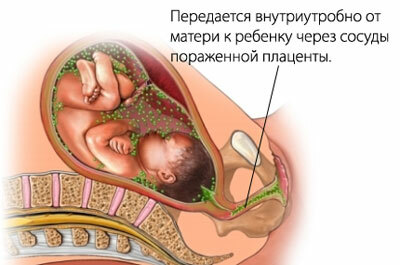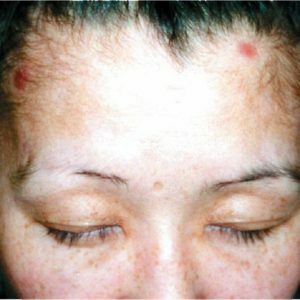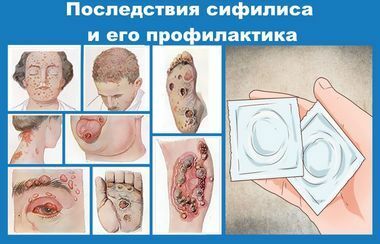Gonorrhea in men: symptoms and treatment

Gonorrhea is a common venereal infection.Pathogen - gonococcus.Sexually transmitted.Affects mucous membranes of the genitourinary system, which eventually leads to inflammation of the organs of the reproductive system and the development of prostatitis.
Infection occurs during intimacy from a sick person to a healthy person. The duration of the incubation period is approximately two weeks.During this period the disease does not manifest itself in any way, and only then do the first symptoms appear.
Table of Contents: Symptoms of gonorrhea in men Diagnosis of gonorrhea Treatment of gonorrhea in men Possible complications of gonorrhea Prevention measuresSymptoms of gonorrhea in men
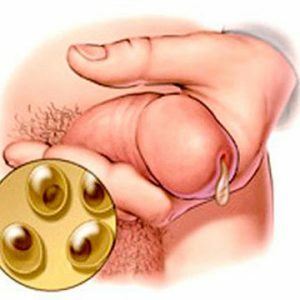
The first signs of gonorrhea in men are usually manifested in the first week after infection.With reduced immunity or after treatment with antibiotics, the latent course of gonorrhea increases to two to three weeks.
The disease develops from acute to chronic stage.The duration of each of them depends on the individual characteristics of the patient's body.In most patients, the acute form lasts no more than two months, after which the disease passes into a chronic stage.
A few days after the infection, a man can observe the following symptoms:
- discomfort, itching and burning inside the urethra.Sensations increase during urinary retention;
- when pressing on the head of the penis, after urination, pus is secreted;
- over time purulent discharge becomes permanent;
- as the infection spreads along the ascending pathways of the genitourinary system, symptoms of cystitis appear( frequent urge to urinate accompanied by pain).
When gonorrhea spreads to the testicles, the prostate gland, gonorrhea passes into the chronic stage of .Pain during urination, during erection and defecation - signs of prostatitis in gonorrhea.
When the inflammation spreads to the testicles, the inguinal lymph nodes increase, the perineum swells.Intimate intimacy becomes impossible due to pain accompanied by spotting during intercourse.
General symptoms of infection:
- headache;
- fever;
- signs of chills.
In the chronic phase of the disease, the symptoms are smeared and not expressed .At this stage, the disease can be quite a long time to affect different parts of the body, virtually not manifesting.In most cases, patients do not consult a specialist, and take the drugs at their own discretion.Comfortable conditions allow gonorrhea to progress quickly. Symptoms appear only when the disease is complicated by the development of more serious pathologies.
Diagnosis of gonorrhea
The specialist begins the diagnosis with a mandatory interview with the patient, collecting anamnesis and examination. It is important not to hide anything from the doctor.This greatly depends on the effectiveness of treatment and health of the partner.
The examination determines the stage of the disease, as well as the risk of possible complications.
To clarify the diagnosis, the following laboratory tests are prescribed:
- seeding the smear on nutrient media.Take allocation from the rectum and urethra, as well as the secret of the prostate;
- bacteriological examination of a smear from the urethra;
- blood on ELISA.
 Conduct an immunological sensitization test.In this case, the upper layers of the skin are injected with proteins infected with gonococcus.If there is an infection in the body, within a day the skin around the injection site will turn red.The redness is less than 10 mm in diameter - a conditionally negative result.From 11 to 20 mm - an unreligiously positive result.More than 10 mm is a significantly positive response.
Conduct an immunological sensitization test.In this case, the upper layers of the skin are injected with proteins infected with gonococcus.If there is an infection in the body, within a day the skin around the injection site will turn red.The redness is less than 10 mm in diameter - a conditionally negative result.From 11 to 20 mm - an unreligiously positive result.More than 10 mm is a significantly positive response.
The examination continues to establish the type of gonococci, their quantitative distribution by internal organs.
Treatment of gonorrhea in men
The main task of therapeutic methods and the choice of drugs for the treatment of gonorrhea is the destruction of the causative agent of the disease.The specialist conducts a culture of sensitivity to determine which group of antibiotics is most effective in solving this problem. Depending on the type, gonococci are sensitive to such antibacterial drugs:
- tetracyclines;
- cephalosporins;
- penicillins.
The doctor determines the dosage given their bacteriostatic and bactericidal action.
Gonorrhea without complications is treated on an outpatient basis.
Indications for hospitalization:
- gonorrhea, complicated by conjunctivitis, epididymitis, prostatitis;
- prolonged course of the disease without treatment;
- formation of sepsis and generalized infection;
- persistent relapse of gonorrhea signs.
Drug treatment is carried out in conjunction with maintenance therapy, which strengthens the immune system. It includes such preparations :
- hepatoprotectors;
- vitamins;
- non-steroidal anti-inflammatory drugs;
- immunomodulators.
In addition to medical treatment, the patient should adhere to the following recommendations:
-
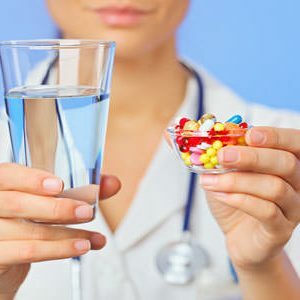 to avoid psycho-emotional overstrain and any physical exertion;
to avoid psycho-emotional overstrain and any physical exertion; - to refuse from alcohol and smoking;
- enrich your diet with fiber and protein products.To consume more seafood, fruits, meat, fish and vegetables;
- provide a complete rest and sleep;
- abstain from sexual intercourse until full recovery.
When a disease complicated by the development of severe pathologies, prescribe therapy with several types of antibiotics of different groups.
It should be noted that treatment should be carried out by both partners, otherwise the therapy will be ineffective.
Possible complications of gonorrhea
Complications develop against a background of chronic form.The lack of treatment allows gonococci to spread to the tissues of internal organs, which contributes to the development of other inflammatory diseases.
Primary secondary infections develop:
- candidiasis;
- chlamydia;
- ureaplasmosis.
Severe complications of gonorrhea:
- prostatitis;
- orcoepididymitis.
A combination of infectious diseases leads to a violation of sperm production, and with the spread of infection on both testicles, persistent infertility develops.
Prostatitis usually develops against the background of gonorrhea.The disease proceeds in a chronic form and is difficult to treat.
The development of conjunctivitis against a background of gonorrhea is a special kind of complication.This can lead to loss of vision or complete atrophy of the eye tissues.
The spread of infection to other internal organs leads to the development of generalized infection, which manifests itself in the form of meningitis, skin lesions, myocarditis, hepatitis.
Prevention measures
 To avoid infection, you must carefully observe the rules of intimate hygiene.Avoid casual sex.Use condoms .Regularly undergo examinations with a doctor and take tests for the presence of sexually transmitted diseases.
To avoid infection, you must carefully observe the rules of intimate hygiene.Avoid casual sex.Use condoms .Regularly undergo examinations with a doctor and take tests for the presence of sexually transmitted diseases.
Gonorrhea, as a rule, is detected in an already neglected form, since at the initial stage it is asymptomatic.A timely treatment can completely get rid of this infection.
Radevich Igor Tadeushevich, the doctor of the sexopathologist-andrologist of 1 category

